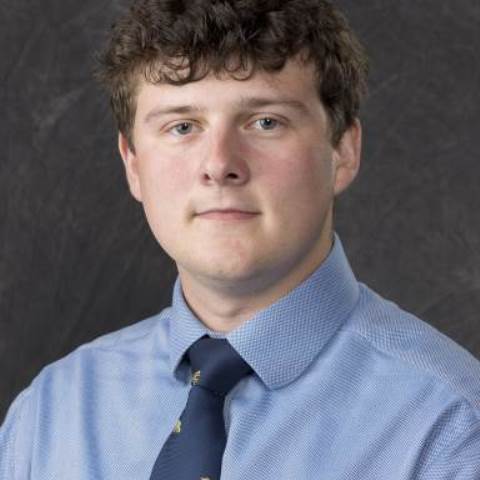

Located just 20 miles from the geographic center of the United States, Red Cloud, Neb., is home to one of the 20th Century’s most prolific and distinctive writers: Willa Cather.
Cather stands as one of the most feared and respected editors and publishers of her period, working as the managing editor of McClure’s and publishing with her close friend, Alfred Knopf. Cather’s biographer, James Woodress, claims that alongside Oxford and Hannibal, Red Cloud is "one of [three] famous towns in America that belong both to fact and to fiction." Since Cather’s time, Red Cloud’s population has dwindled from 2,500 in 1884 to 948 in 2022. Despite this, the National Willa Cather Center (NWCC) has ensured that she "could return to the town of her adolescence and feel at home" (Woodress). That home is now the home of the NWCC’s Teacher Institute, which brings a small K-12 teaching cohort to Red Cloud every year. During this institute, I toured, researched, and developed our first World Literature unit in Red Cloud, Lincoln, and Omaha.
Each morning, we left immediately from Cather’s childhood home for a tour. The first tour took us around Red Cloud’s museums, including the NWCC’s "American Bittersweet" exhibition, the historic Burlington Train Depot, and the Farmers & Merchants Bank Historical Museum. Notable here is the multi-purpose "Key to the City." The second day took us through the NWCC’s research archives, home to hundreds of Cather texts and ephemera. The third tour took us through the country to a number of important cemeteries, churches, and homes relevant to Cather’s life. Despite the corn harvesters and wind turbines, the dugout remains and historic homes did summon the Nebraska of her novels.
Each afternoon, we returned to the NWCC for a teaching or research workshop. On the first day, Kelsey Squire of Dominican University led a session on the benefits and drawbacks of biographical reading. On the second, Nathan Tye of UN-Kearney led a discussion and sample lesson on document analysis in English classrooms. This lesson focused on the characteristics of the 19th Century ethnic groups that populate Cather’s fiction. On the third day, we drove into Lincoln to visit with Melissa Homestead, director of the Cather Project, at the Love Library on the campus of the University of Nebraska. Each of these workshops produced new angles and resources for instruction with Cather’s works, resources that I’ve already used in my classroom this year.
We had some fun moments, too: A tornado touched down just north of town on the drive in; we visited On the Brix Wine Bar, only open for three days a week, and Alley Cats Bowling, the only business open on Sundays in Red Cloud; we watched Lee Isaac Chung’s Cather-esque film, "Minari" (2020), in the same theater Cather performed in as a child; we drove out to the geographical center of the United States, where there’s a monument and a one-room church; We walked the prairie under full cover of the stars and ate ripe mulberries straight from the trees; we shopped during the Zoofest Music Festival in downtown Lincoln, and then went to a Kid Laroi concert in Omaha that night.
Cather’s short story, "A Wagner Matinee," appeared in the Short Story Prize Committee unit of my world literature class this fall, wherein students voted on a series of short stories based around the Wagnerian themes of synthesis and leitmotif. By approaching the story with point of view in mind, my students parsed the subtle narrative tricks of the story’s protagonist. It’s because of the NWCC’s generosity that I was able to develop this unit in the home of my favorite writer, and it’s been rewarding to see that work pay off in our classroom.
Professional growth and development are high priorities for Darlington. Each year, faculty and staff members participate in a professional growth cycle that includes professional learning communities, professional development days, and the ability to apply for professional development grants which fund conferences, travel, workshops, instructional supplies, outside speakers, and more. For the next few weeks, our blog series will highlight some of the opportunities that faculty and staff have participated in since they were awarded 2024-2025 Thatcher Grants last spring.